Community Cafe in a Renovated Sento - Rébon Kaisaiyu in Uguisudani
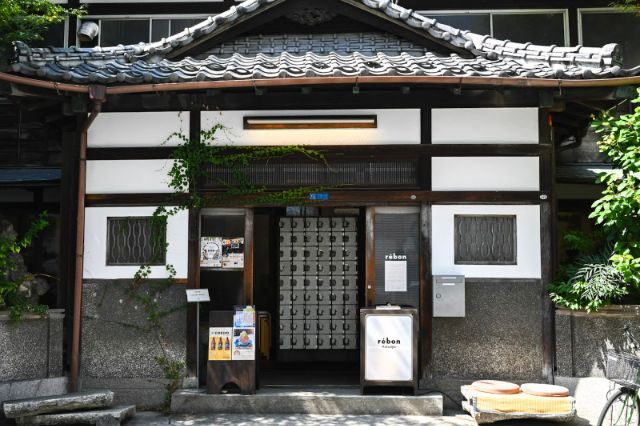

The Revival of Sento Culture
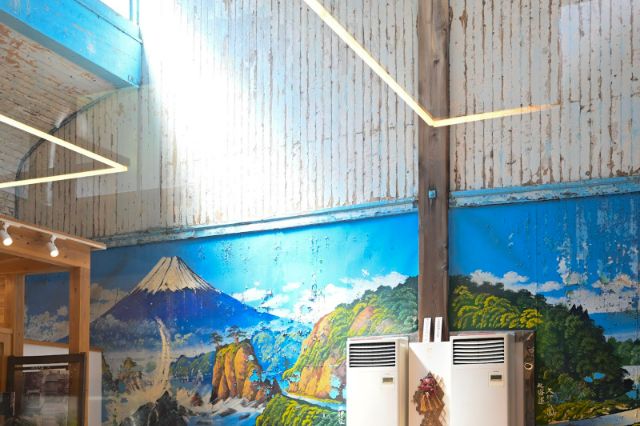
Pushes for more tattoo-friendly spas and general education on history and etiquette are making it easier for guests to appreciate the unique ambiance a sento has to offer. It’s just one part of the trend that has seen baths drained for DJ parties, steam-tinted Mt.Fuji paintings preserved in galleries, and fading practices revived with a flood of young people into saunas and super sento.
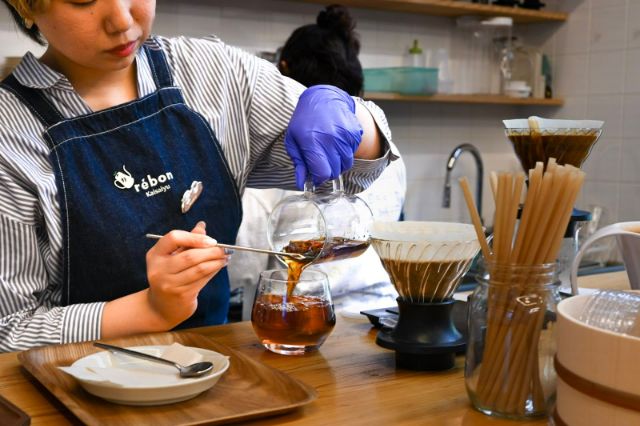
History of rébon Kaisaiyu Sento
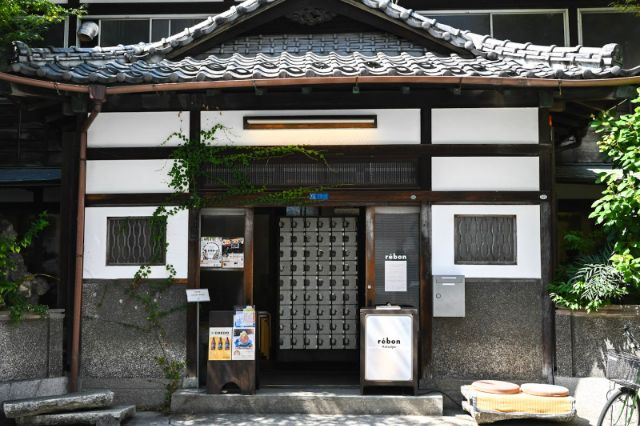
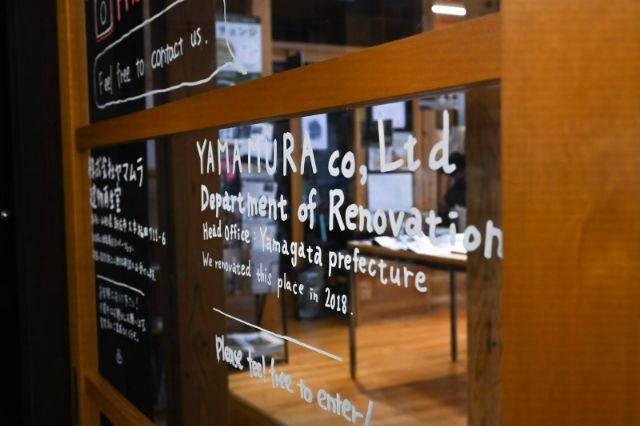
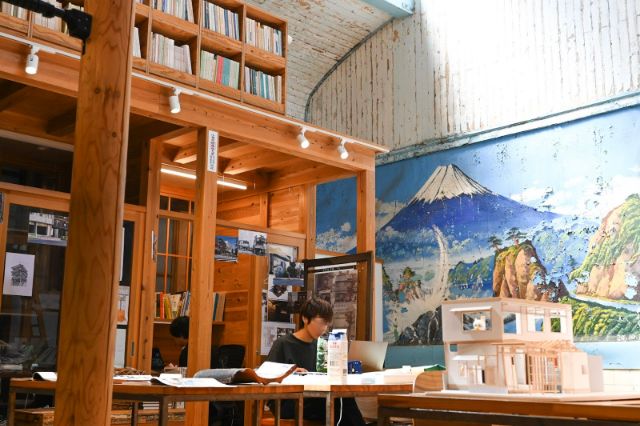
Cafe menu
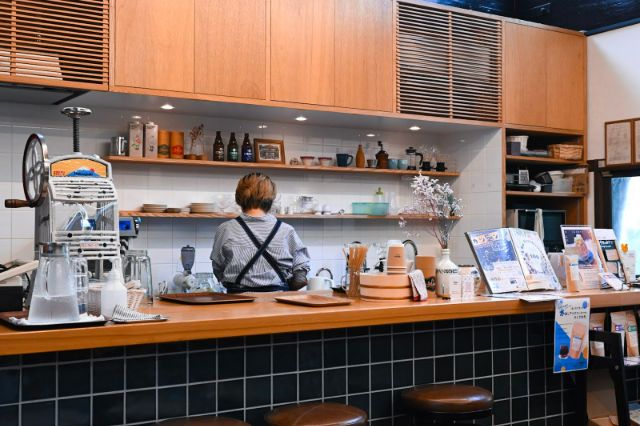
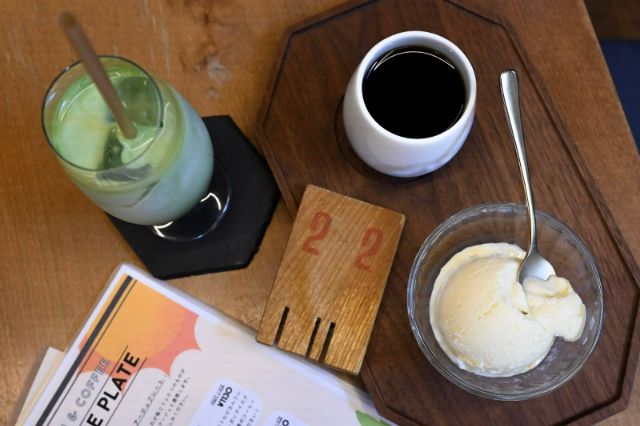
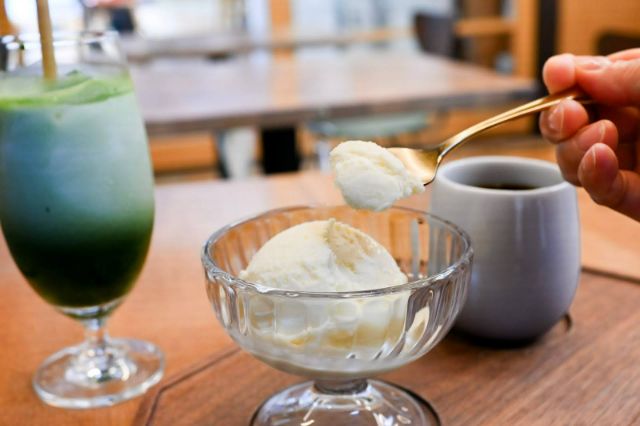
The space
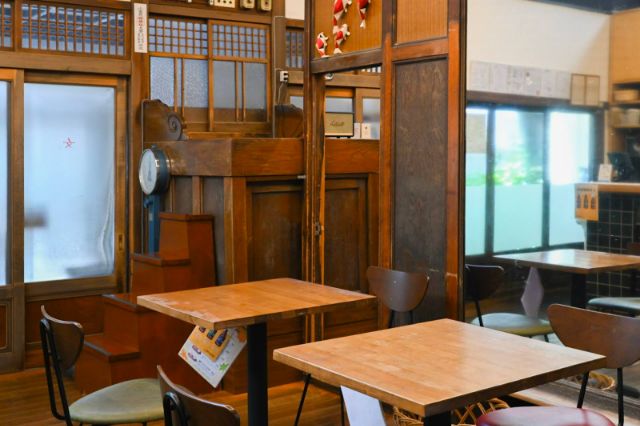
In the center, near the sliding entrance doors, a zabuton cushion on a raised platform marks where staff would have sat to collect coins on each guest’s way towards the baths. The remaining bandai too, where the owner used to sit, is still in good condition. If you ask the staff, they’ll let you take a commemorative photo while sitting on it. High above, a clock with the baths’ original name ticks away the hours.
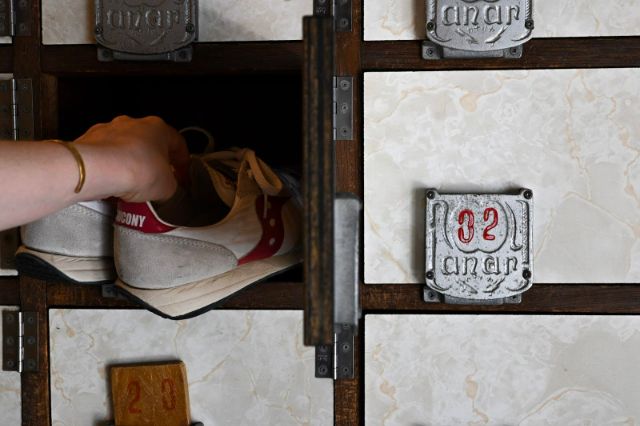
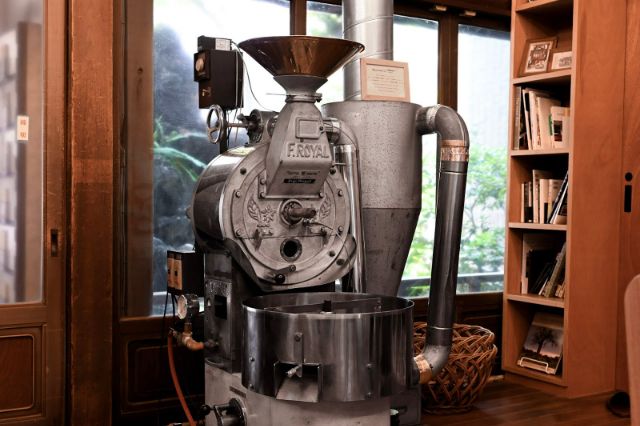
Legacy and Future
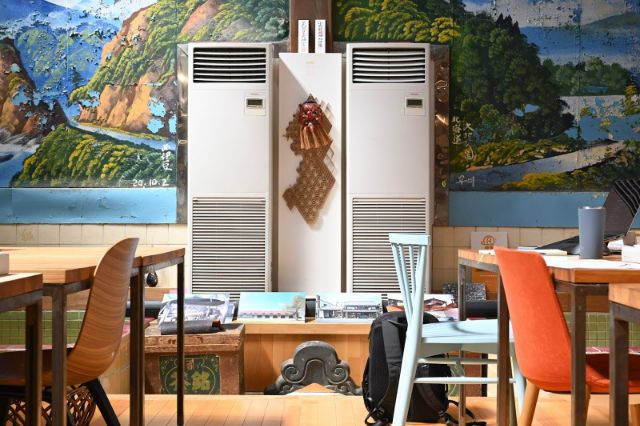
The team behind rébon Kaisaiyu hope that through this space, people can feel the bonds of community this particular bathhouse nurtured over its decades of operation. In every corner, you can feel that though the baths may be gone, the warmth remains. Having a coffee at rébon might be just a splash of sento culture, but spending an hour in this beautiful space is enough to make anyone feel like a part of its story.
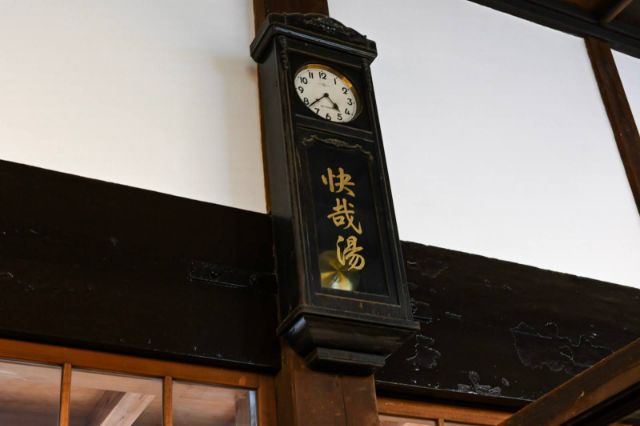
Access: 5 minutes from Hibiya-line Iriya station
12 minutes from Yamanote-line Uguisudani station
Address: 2-17-11 Shitaya, Taito-ku, Tokyo
Hours: 10:00 a.m. - 6:00 p.m.
Closed Irregular holidays. Please check social media for the latest information.
Other Tokyo Eateries
Yakiniku Tattontei
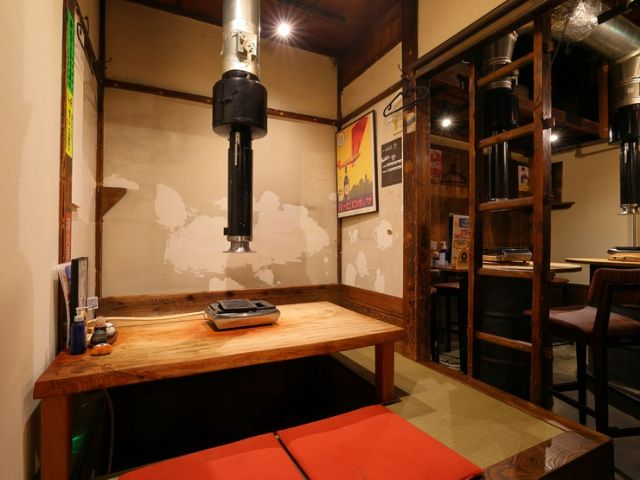
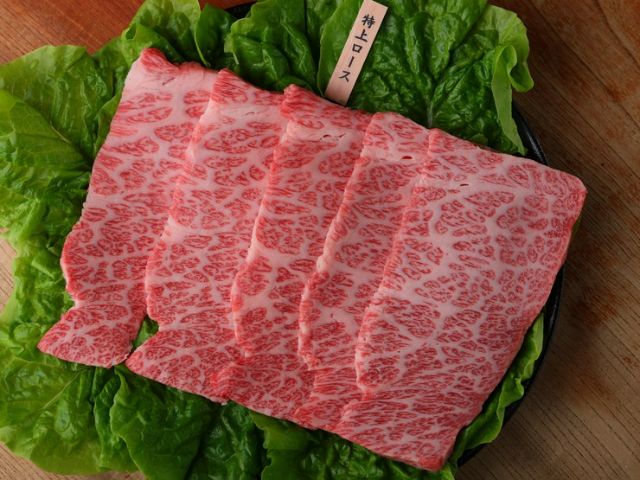
Yakiniku Tattontei
Closed: None
Average price: [Dinner] 6,000 JPY
Access: 1-minute walk from the East Exit of JR Asakusabashi Station. 1-minute walk from Subway Asakusabashi Station.
Address: 1-9-7, Asakusabashi, Taito-ku, Tokyo Map
More Details Reservation
Kappou Sanchou
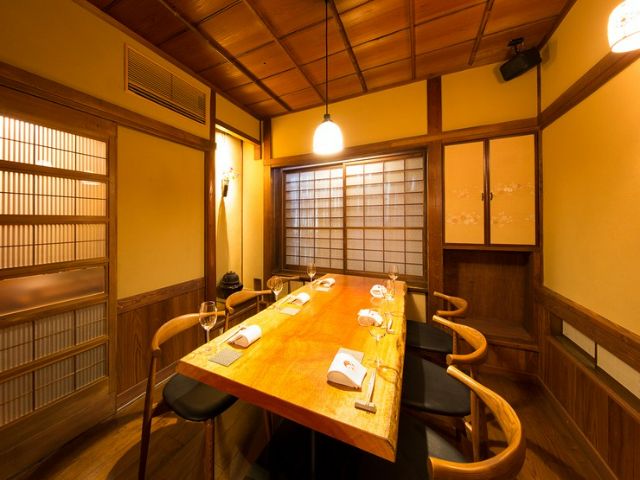
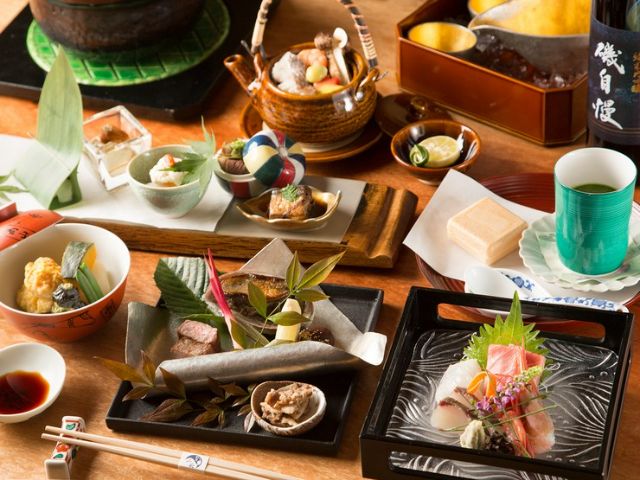
Kappou Sanchou
Closed: Sunday, National Holidays
Average price: [Dinner] 15,000 JPY
Access: 9 minutes walk from JR Shibuya Station, or 5 minutes from Shinsen Station on Inokashira Line
Address: 6-1, Maruyama-cho, Shibuya-ku, Tokyo Map
More Details Reservation
aux
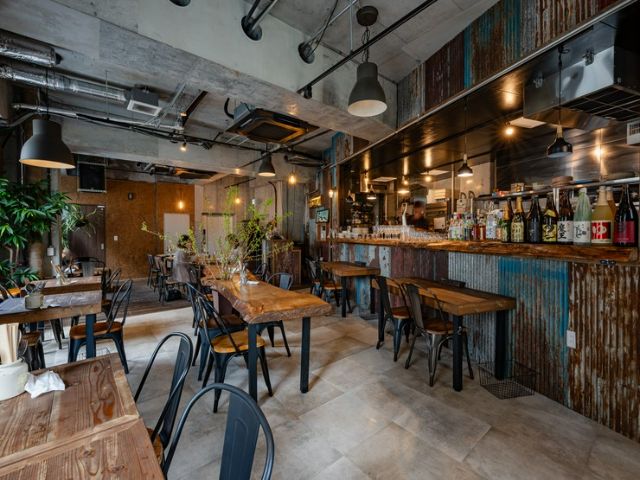
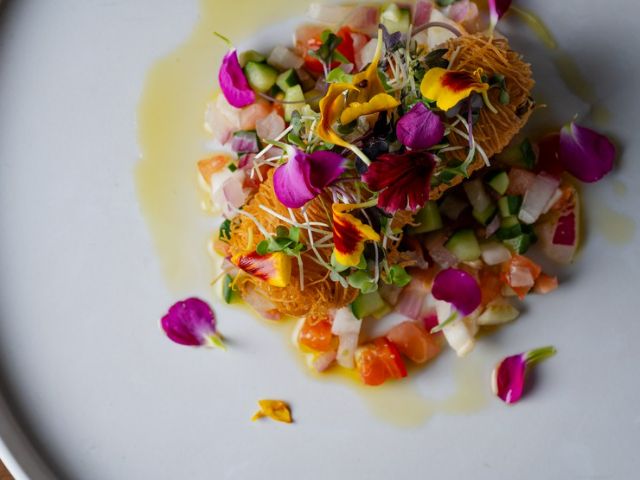
aux
Closed: Irregular
Average price: [Dinner] 5,000 JPY / [Lunch] 2,000 JPY
Access: 5-minute walk from Yoyogi-Hachiman Station on Odakyu Line and Yoyogi-Koen Station on Tokyo Metro Chiyoda Line
Address: 2F, NYCmotoyoyogi, 5-2, Motoyoyogi-cho, Shibuya-ku, Tokyo
KUFUKU ±
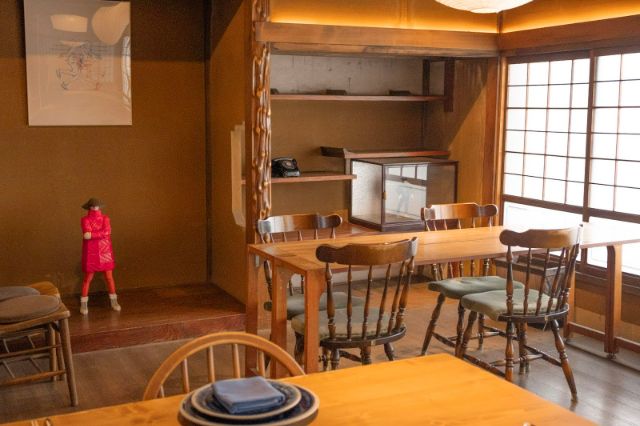
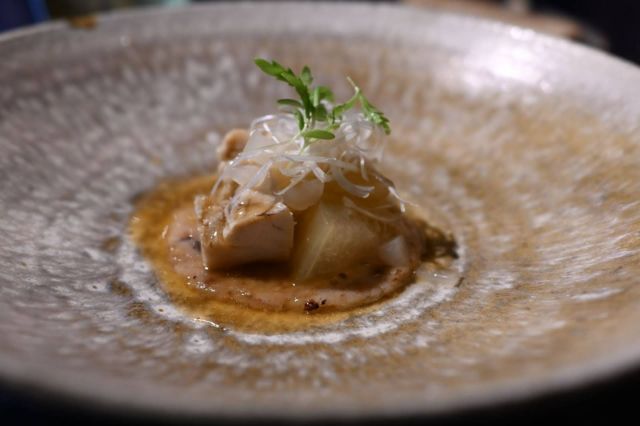
Open: [Wednesday]Dinner 5:30 pm - 10:00 pm (Food L.O. 8:00 pm / Drink L.O. 9:30 pm), [Thursday, Friday, Saturday, Sunday]Lunch 11:30 am - 2:30 pm (L.O. 1:00 pm)/Dinner 5:30 pm - 10:00 pm (Food L.O. 8:00 pm / Drink L.O. 9:30 pm)
Closed: Mondays and Tuesdays. Additionally, for the time being, lunch service will only be available on Thursdays, Fridays, Saturdays, and Sundays.
Access: 2-minute walk from Suehirocho Station and a 5-minute walk from Akihabara Station.
132 meters from Suehirocho.
Address: 4-11-8 Sotokanda, Chiyoda-ku, Tokyo
You May Also Like
Disclaimer: All information is accurate at time of publication.
Thank you for reading our article.
Our goal is to take your culinary journey to the next level by helping you find the best restaurant. With SAVOR JAPAN, you can search and make reservations for
the Sweets and Cafe restaurants found in and around Tokyo and Ueno that fill your needs.
Discover more Sweets and Cafe restaurants by area
- Tokyo Area
- Near Tokyo
- Kyoto and Osaka Area
- Hokkaido Area
- Northern Honshu (Tohoku)
- Central Honshu (Chubu)
- Western Honshu (Chugoku)
- Shikoku
- Kyushu
- Okinawa and Ryukyu Islands
Discover more restaurants to eat Cafe/Sweets and Cafe/Sweets by area
Keywords
Related Articles
New Articles
Categories
Cuisine
- Bars (23)
-
Japanese Cuisine (684)
- Kaiseki (47)
- Nabe (19)
- Okonomiyaki (25)
- Shabu Shabu (37)
- Soba (18)
- Sushi (139)
- Tempura (19)
- Teppanyaki (47)
- Shojin Ryori (4)
- Tonkatsu (13)
- Kushiyaki (10)
- Yakitori (45)
- Sukiyaki (36)
- Japanese Cuisine (343)
- Oyster (2)
- Sashimi/ Seafood (25)
- Unagi (eel) (34)
- Motsu Nabe (offal hotpot) (6)
- Mizutaki (chicken hot pot) (3)
- Oden (8)
- Kaisendon (seafood bowl) (11)
- Udon (2)
- Taverns(Izakaya) Cuisine (126)
- Western Cuisine (42)
- Italian/French Cuisine (95)
- Yakiniku/Steak (226)
- Chinese Cuisine (26)
- Ramen (Noodles) Cuisine (24)
- Cafe/Sweets (62)
- Other Asian Cuisine (5)
- Global/International Cuisine (7)
- Alcohol (47)
- Other (11)
Area
- Shikoku (10)
- Kyoto and Osaka (345)
-
Tokyo (467)
- Tokyo (293)
- Ginza (44)
- Roppongi (21)
- Shibuya (28)
- Shinjuku (46)
- Asakusa (20)
- Ebisu (12)
- Tsukiji (10)
- Tokyo Landmarks (4)
- Ueno (23)
- Akihabara (9)
- Ikebukuro (12)
- Jiyugaoka, Denenchofu, Nakameguro (9)
- Shimokitazawa (4)
- Kichijoji (3)
- Tachikawa (1)
- Omotesando, Harajuku, Aoyama (18)
- Akabane (1)
- Kagurazaka (4)
- Akasaka (10)
- Odaiba (2)
- Tsukishima, Harumi, Toyosu (3)
- Near Tokyo (99)
- Okinawa and Ryukyu Islands (58)
- Hokkaido (124)
- Northern Honshu (Tohoku) (31)
- Central Honshu (Chubu) (143)
- Western Honshu (Chugoku) (33)
- Kyushu (92)
Archives
- February 2026(1)
- January 2026(11)
- December 2025(9)
- November 2025(4)
- October 2025(3)
- September 2025(6)
- August 2025(11)
- July 2025(19)
- June 2025(18)
- May 2025(34)
- April 2025(43)
- March 2025(30)
- February 2025(36)
- January 2025(26)
- December 2024(69)
- November 2024(31)
- October 2024(15)
- September 2024(39)
- August 2024(65)
- July 2024(31)
- June 2024(53)
- May 2024(61)
- April 2024(28)
- March 2024(31)
- February 2024(42)
- January 2024(32)
- December 2023(20)
- November 2023(5)
- October 2023(11)
- September 2023(7)
- August 2023(18)
- July 2023(8)
- June 2023(8)
- May 2023(18)
- April 2023(15)
- March 2023(1)
- January 2023(1)
- April 2022(2)
- March 2022(2)
- February 2022(1)
- January 2022(1)
- July 2021(1)
- March 2021(1)
- February 2021(1)
- December 2020(1)
- October 2020(1)
- September 2020(2)
- August 2020(10)
- July 2020(6)
- June 2020(9)
- May 2020(10)
- April 2020(8)
- March 2020(8)
- February 2020(13)
- January 2020(9)
- December 2019(24)
- November 2019(8)
- August 2019(14)
- July 2019(15)
- June 2019(18)
- May 2019(17)
- April 2019(16)
- March 2019(22)
- February 2019(22)
- January 2019(26)
- December 2018(34)
- November 2018(40)
- October 2018(32)
- September 2018(11)
- August 2018(8)
- July 2018(6)
- June 2018(9)
- May 2018(10)
- April 2018(20)
- March 2018(74)
- February 2018(39)
- January 2018(25)
- December 2017(60)
Keywords
- Omakase
- Accessible
- Affordable
- All-You-Can-Eat
- Amazing Scenery
- anime
- Art
- Autumn
- Awards
- Beer Gardens
- Breakfast
- Chef Recommendations
- Cherry Blossoms
- Chinese
- Close To Station
- Condiments
- Counter
- Coupon
- Crab
- Culture
- Dassai
- Dates
- delivery
- Early Summer
- Editor's Recommendation
- English Available
- Event
- Expo
- Fall Leaves
- Family-Friendly
- Famous Restaurant
- Famous Tourist Spot
- Fast Food
- festival
- fireworks
- Flower Farm
- Free Wi-Fi
- French
- Great Location
- Guide
- Hibachi
- hotpot
- How To
- hydrangea
- Hygiene
- Illumination
- Italian
- Izakaya
- Japanese
- Japanese alcohol
- jingisukan
- Kaiseki
- Kappo
- Kushiage
- Kushikatsu
- Kyoto
- Late-Night
- Lunch
- Manners
- matsusakagyu
- Michelin
- mizutaki
- Model Course
- monjayaki
- motsunabe
- Mt.Fuji
- Multilingual Menus
- Nabe
- Narita Airport
- New Year
- Ninja
- Noodle
- Oden
- Okonomiyaki
- omotenashi
- Onsen
- Osaka
- Osaka Station
- Photogenic Site
- pizza
- PR
- Private Room
- Ramen
- ranking
- Recipe
- Regional Cuisine
- Resort
- Rice Bowl Dish (Donburi)
- sacred places
- Sake
- Sakura
- Sashimi
- sea urchin
- Setouchi Area
- Shabu Shabu
- sightseeing
- Signature Dish
- Soba
- Solo Diners Welcomed
- Spicy Food
- Spring
- Steak
- Summer
- Sunflower
- Sushi
- takeout
- Teppanyaki
- Terrace Seating
- Tokyo
- Tokyo Experiences
- Tokyo Skytree
- Tokyo Tower
- unagi
- UNESCO
- Vegan
- Vegetarian
- Wagyu
- What Popular Gourmet Sites Recommend
- Whisky
- Wine Bar
- Winter
- Wisteria
- Workshop
- World Heritage Site
- World Writers
- Yakiniku
- Yoshoku
- Yuba
- Zen
Discover Restaurants By Area
-

Tokyo Area
Japan's largest city, Tokyo, is the center of culinary culture in Japan. Countless Tokyo restaurants serve every kind of food imaginable and the Toyosu fish market keeps restaurants stocked with the nation's finest fish.
-

Near Tokyo
Coastal areas, mountains and valleys surrounding Tokyo are bursting with tourist destinations, such as hot springs and ski slopes, where many unique foods are only available locally.
-

Kyoto and Osaka Area
The cities of Kyoto and Osaka, together with their surrounding areas, have greatly influenced Japan's culinary culture since the 7th Century. The region is renowned for its entertainment, Kobe beef, and wide-ranging traditional dishes.
-

Hokkaido Area
The island of Hokkaido is home to wide-ranging produce of the finest quality, such as rice, meat, vegetables, fish and fruit. Popular dishes from Hokkaido include robatayaki (food slowly roasted on skewers) and Sapporo miso ramen.
-

Northern Honshu (Tohoku)
The northern end of Japan's main island, Honshu, is renowned for its seasonal fruit and vegetables, nation-leading harvest of fish (especially tuna from Ohma), and delicious beef from Yonezawa, Sendai and Yamagata.
-

Central Honshu (Chubu)
Chubu is in the center of Japan's main island, Honshu, and its culinary culture reflects its position between Japan's western and eastern halves. Delicious Hida beef, world-famous Mount Fuji and many acclaimed sake breweries are in Chubu.
-

Western Honshu (Chugoku)
Chugoku, on the southwest of Japan's main island, is rich with diverse produce. Many of its products are praised as Japan's best, including Matsuba crabs from Tottori and oysters from Hiroshima. Its pears and muscats are also top grade.
-

Shikoku
The mild climate of Shikoku is ideal for growing citrus fruit such as sudachi. Shikoku is also famous for Sanuki udon noodles, huge yields of tiger prawn from Ehime Prefecture and the best torafugu (tiger globefish) in the country.
-

Kyushu
Western culture was first introduced to Japan through Kyushu, Japan's third largest island, where the influence of Portuguese and other western cuisine influenced the creation of a colorful culinary tradition.
-

Okinawa and Ryukyu Islands
Okinawa, Japan’s southernmost prefecture, is a treasure trove of distinctive dishes and drinks that have become popular throughout Japan, including Okinawa soba, unique sushi toppings and Awamori distilled liquor.

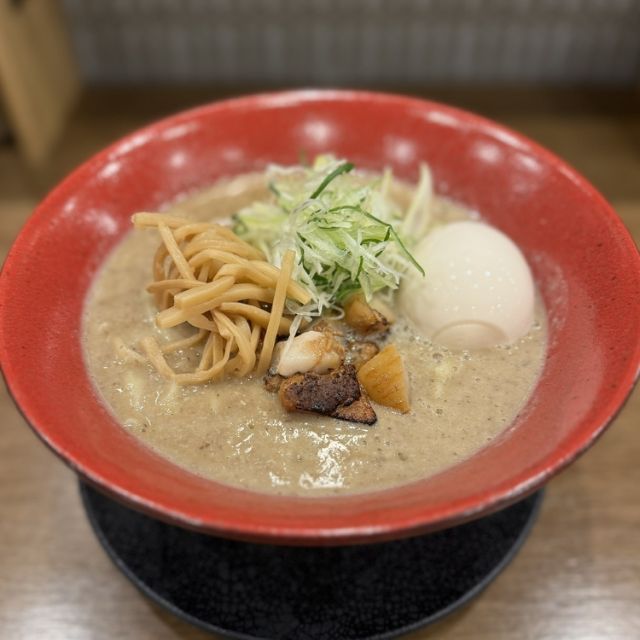
![Must-Visit Attractions in Yanaka Ginza and Nearby Delicacies: Cute Cat Sculptures and Popular Foods[Tokyo Downtown Half-Day Tour]](https://rimage.savorjapan.com/svj/image/discover_oishii_japan/6729/article_head.jpg?t=1757063774)
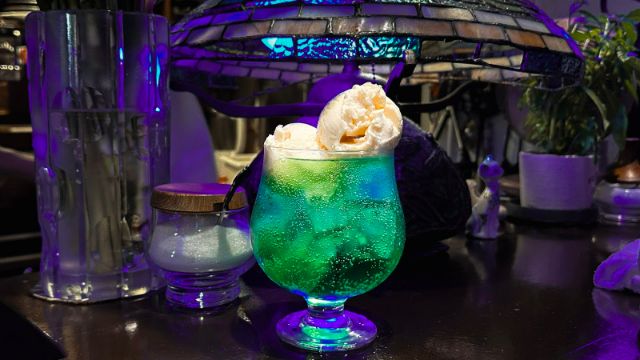
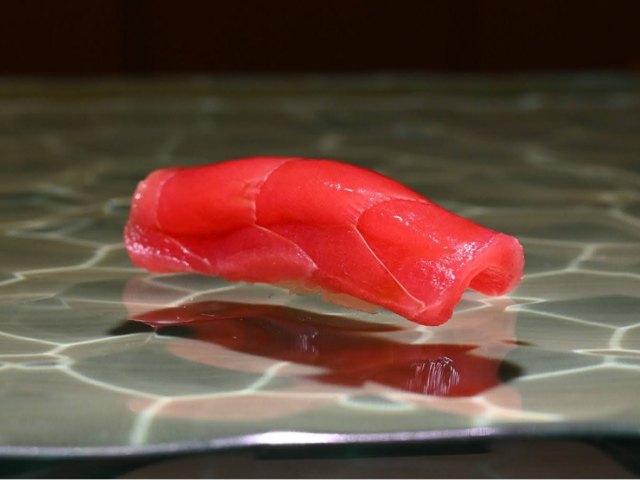
![[Ended]Nihonbashi Yukari Chef Kimio Nonaga Curates a Pop-Up Showcasing Flavors of Nara Yoshinoyama](https://rimage.savorjapan.com/svj/image/discover_oishii_japan/6793/article_head.jpg?t=1761545171)
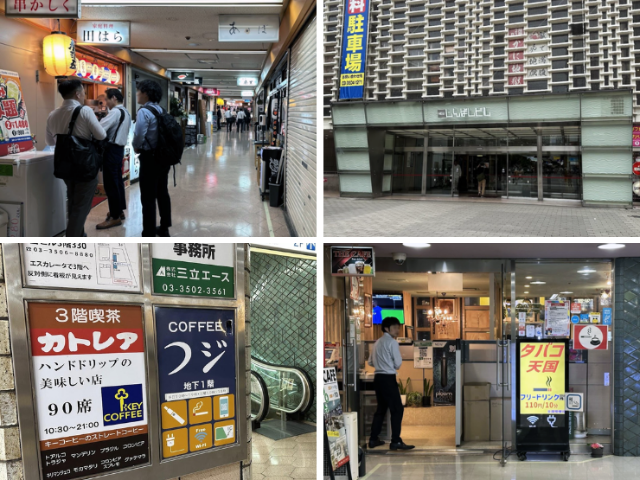
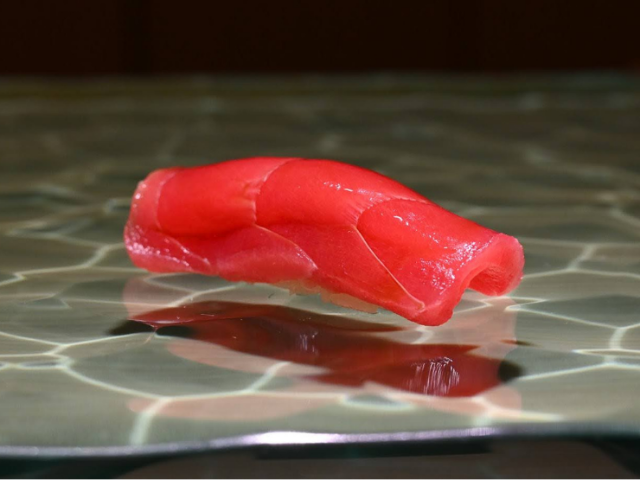
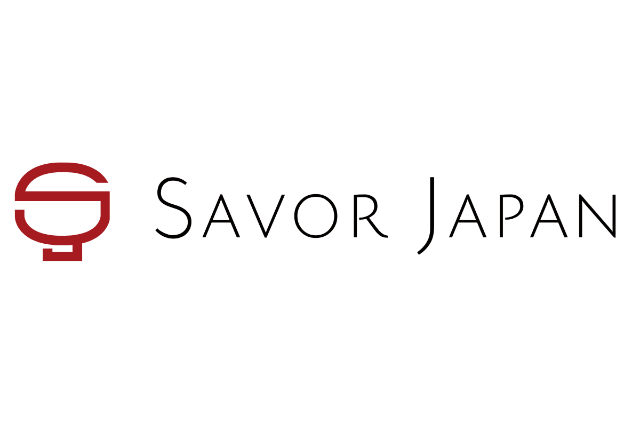
![[2026 Edition] Tokyo's Cherry Blossom Guide: Must-Visit Spring Spots](https://rimage.savorjapan.com/svj/image/discover_oishii_japan/6927/article_head_150x105z.jpg?t=1768882541)